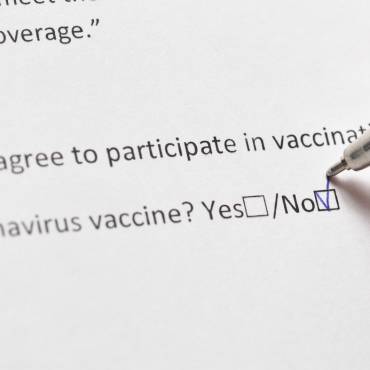In France, despite a high rate of pneumococcal conjugate vaccine coverage, the number of cases of pneumococcal meningitis in children did not decline significantly between 2001–2002 (n = 264) and 2007–2008 (n = 244). A decline was observed among children < 2 years old (185 [70.1%] to 134 [54.9%] cases; P = 0.0004), but was counterbalanced by an increase among children ≥ 2 years old (79 [29.9%] to 110 [45.1%] cases). Mean age increased significantly, from 2.3 (median 0.8) to 3.8 (median 1.5) years. After pneumococcal conjugate vaccine 7 implementation, a wide diversity of serotypes implicated in pneumococcalmeningitis was observed; serotypes 19A and 7F were the most frequent.
Source:
|
Pediatric Infectious Disease Journal Feb 4th, 2011//Vol. 30 Iss. 2//pgs. 168-170. |
So while the incidence of vaccine type pneumonia may have gone down in both groups, new types have evolved as a result in both the vaccinated and the unvaccinated and these new types do not respond to antibiotics. People who actively choose not to be vaccinated or parents who do not wish their children to be vaccinated can still acquire these resistant super-bug strains despite avoiding the vaccine so rather than protecting the ‘herd’ the vaccinated population put them at risk of this unintended effect.
In the vaccinated, the vaccine is still not guaranteed to protect them.and has been shown to increase severe lung disease (Empyema Hospitalizations Increased in US Children Despite Pneumococcal Conjugate Vaccine, Pediatrics January 2010, VOLUME 125 / ISSUE 1)


